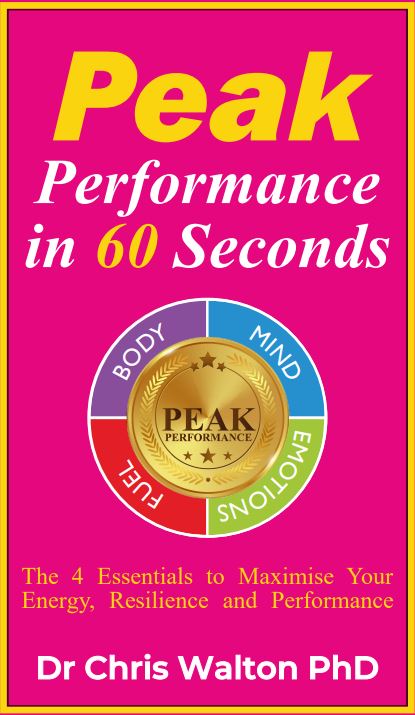Emotional intelligence is an important aspect of personal development that helps individuals to understand, manage, and express their emotions in a positive way.
It is the ability to recognize and regulate one’s own emotions, as well as the emotions of others, and use this understanding to guide decision-making and behavior.
Emotional intelligence is a key factor in building strong relationships, managing stress, and achieving success in both personal and professional life.
One of the most important applications of emotional intelligence is in building resilience.
Resilience refers to the ability to bounce back from adversity, to cope with stress and challenges, and to maintain a positive outlook in the face of setbacks.
Emotional intelligence can help individuals to develop the skills they need to build resilience, including the ability to manage their emotions, communicate effectively, and develop strong relationships with others. By increasing their emotional intelligence, individuals can become more resilient and better equipped to handle the challenges of life.
In this article, we will explore what emotional intelligence is and how it can be applied to increase resilience.
We will discuss the key components of emotional intelligence, including self-awareness, self-regulation, social awareness, and relationship management, and provide practical tips for developing these skills.
We will also examine the relationship between emotional intelligence and resilience, and provide strategies for building resilience through emotional intelligence.
Understanding Emotional Intelligence
Definition
Emotional Intelligence (EI) is a set of abilities that allows individuals to recognize, understand, and manage their own emotions, as well as the emotions of others.
It involves the ability to perceive, express, and regulate emotions effectively and appropriately.
The concept of emotional intelligence was first introduced by psychologists Peter Salovey and John Mayer in 1990 and later popularized by Daniel Goleman in his book “Emotional Intelligence: Why It Can Matter More Than IQ.”
Five Components
There are five key components of emotional intelligence:- Self-awareness: the ability to recognize and understand one’s own emotions, strengths, weaknesses, and values.
- Self-regulation: the ability to control and manage one’s own emotions, thoughts, and behaviors.
- Motivation: the ability to use emotions to drive and sustain motivation and goal-directed behavior.
- Empathy: the ability to understand and share the emotions of others and to respond appropriately to their feelings.
- Social skills: the ability to build and maintain relationships, communicate effectively, and work collaboratively with others.
Each of these components is important for developing emotional intelligence and increasing resilience.
Individuals who possess high levels of emotional intelligence are better equipped to handle stress and adversity, communicate effectively, and build strong relationships with others.
In summary, emotional intelligence is a set of skills that can be developed and applied to increase resilience and improve overall well-being.
By understanding the five components of emotional intelligence and working to improve these skills, individuals can enhance their ability to manage their own emotions, build strong relationships with others, and thrive in challenging situations.
Role of Emotional Intelligence in Resilience
Emotional intelligence is a crucial factor in building resilience. It is the ability to recognize, understand, and manage one’s emotions, as well as the emotions of others. Individuals with higher emotional intelligence are better equipped to handle stressful situations and recover from setbacks. Research has shown that emotional intelligence is positively correlated with resilience. This means that individuals with higher emotional intelligence are more likely to bounce back from adversity and maintain their well-being. Emotional intelligence can help individuals to:- Recognize and manage their own emotions: By understanding their emotions, individuals can regulate their behavior and reactions in stressful situations. This can help them to avoid making impulsive decisions and maintain a sense of control.
- Understand the emotions of others: By recognizing the emotions of others, individuals can respond appropriately and empathetically. This can help to build stronger relationships and support networks.
- Develop coping strategies: Emotional intelligence can help individuals to identify healthy coping strategies that work for them. This can include mindfulness, exercise, or seeking support from others.
- Build resilience: By developing emotional intelligence, individuals can build their resilience and bounce back from setbacks more easily. This can help them to maintain their well-being and achieve their goals.
In summary, emotional intelligence plays a crucial role in building resilience. By recognizing, understanding, and managing emotions, individuals can develop coping strategies and build their resilience to overcome adversity.
Applying Emotional Intelligence to Increase Resilience
Emotional intelligence (EI) is the ability to identify, understand, and manage one’s own emotions, as well as the emotions of others. It is a crucial skill for building resilience, which is the ability to adapt to stress and adversity. By applying emotional intelligence, individuals can develop resilience and cope with challenges more effectively.
Self-Awareness
The first step in applying emotional intelligence to increase resilience is to develop self-awareness. This involves recognizing and understanding one’s own emotions, as well as the impact they have on behavior. By being aware of one’s emotional state, individuals can better manage their reactions to stressful situations.
To develop self-awareness, individuals can practice mindfulness, which involves paying attention to the present moment without judgment. They can also keep a journal to track their emotions and identify patterns in their behavior.
Self-Regulation
Self-regulation is the ability to manage one’s own emotions and behavior in response to different situations. It involves being able to control impulses, manage stress, and maintain a positive outlook.
To develop self-regulation, individuals can practice relaxation techniques such as deep breathing and meditation. They can also develop a positive self-talk, which involves replacing negative thoughts with positive ones.
Motivation
Motivation is the drive to achieve goals and pursue one’s passions. It is an important aspect of emotional intelligence, as it helps individuals stay focused and committed to their objectives.
To develop motivation, individuals can set achievable goals and create a plan to achieve them. They can also seek out support from others and celebrate their successes along the way.
Empathy
Empathy is the ability to understand and share the emotions of others. It involves being able to put oneself in another person’s shoes and see things from their perspective.
To develop empathy, individuals can practice active listening, which involves paying attention to what others are saying without interrupting or judging them. They can also seek out opportunities to volunteer and help others.
Social Skills
Social skills are the ability to communicate effectively and build positive relationships with others. It involves being able to express oneself clearly, listen actively, and resolve conflicts.
To develop social skills, individuals can practice assertiveness, which involves expressing one’s needs and opinions in a respectful manner. They can also seek out opportunities to collaborate with others and practice active listening.
Benefits of Enhanced Resilience
Enhancing resilience through emotional intelligence can bring a range of benefits to individuals in both their personal and professional lives. Here are some of the ways in which increased resilience can benefit individuals:
Improved Coping Mechanisms
People with enhanced resilience are better equipped to handle stress and adversity. They are able to bounce back from setbacks, learn from their experiences, and move forward with a positive outlook. This can help them cope better with difficult situations, both in their personal and professional lives.
Better Mental Health
Resilience is closely linked to mental health, and people with enhanced resilience are less likely to experience mental health problems such as anxiety and depression. They are better able to manage their emotions, maintain a positive outlook, and stay motivated, even in challenging circumstances.
Increased Productivity
Enhanced resilience can also lead to increased productivity in the workplace. People who are better equipped to handle stress and adversity are more likely to stay focused and motivated, even when facing difficult challenges. This can help them achieve their goals more effectively and contribute more to their teams.
Stronger Relationships
Resilience is also important for building and maintaining strong relationships. People with enhanced resilience are better able to communicate effectively, manage conflicts, and build trust with others. They are also more likely to be supportive and empathetic, which can help them build stronger, more meaningful relationships with others.
Improved Decision-Making
Finally, enhanced resilience can also improve decision-making skills. People who are better able to handle stress and adversity are more likely to make thoughtful, well-informed decisions, even in difficult circumstances. They are also more likely to be able to see the bigger picture and consider the long-term consequences of their decisions.
Conclusion
In conclusion, emotional intelligence is a valuable skill that can help individuals increase their resilience. By improving their ability to recognize and regulate their own emotions, individuals can better cope with stress and adversity. Additionally, by developing empathy and social skills, individuals can build stronger relationships and support systems, which can further enhance their resilience.
Research has shown that emotional intelligence can be developed and improved over time through various techniques such as mindfulness, self-reflection, and communication skills training. By consistently practicing these techniques, individuals can strengthen their emotional intelligence and increase their resilience in the face of challenges.
It is important to note that emotional intelligence is not a cure-all for resilience. Other factors such as social support, coping strategies, and personal values also play a significant role in resilience. However, emotional intelligence can be a valuable tool to add to one’s resilience toolkit.
Overall, individuals who prioritize developing their emotional intelligence are likely to experience greater resilience and overall well-being. By recognizing and regulating their own emotions, building strong relationships, and effectively communicating with others, individuals can better navigate the challenges and uncertainties of life.


